|
SPEAKERS
Jeffrey A. Bader is a senior fellow and founding director of the John L. Thornton China Center at the Brookings Institution. He served in the U.S. government for three decades, including 2009-2011 when he served at the National Security Council and was President Obama's principal advisor on Asia. His book on that experience is Obama and China's Rise:An Insider's Account of America's Asia Strategy. His most recent essay is "How Xi Jinping sees the world... and why."
|

|

|
Carla Freeman teaches at the Johns Hopkins University School of Advanced International Studies and directs the school's Foreign Policy Institute. She works on China's international and domestic policy. Her work on China's regional policies and struggle to balance development and environmental sustainability has been especially influential. She's edited or co-edited many important works, including the new eight volume series The International Relations of China as well as Handbook on China and Developing Countries and China and North Korea:Strategic and Policy Perspectives from a Changing China.
|
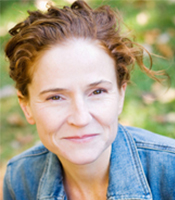
|

|
Mary Gallagher heads the Lieberthal - Rogel Center for Chinese Studies at the University of Michigan where she also teaches political science. Gallagher has long looked at links between economic development and political change and the rule of law in China. Her first book was Contagious Capitalism:Globalization and the Politics of Labor in China and her newest is Authoritarian Legality:Law, Workers, and the State in Contemporary China (out soon). Other works look at "legislating harmony," how Chinese media supports authoritarianism, and corporate restructuring.
|
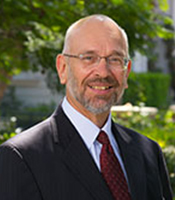
|

|
Eric Heikkila teaches public policy and oversees international initiatives at the USC Price School of Public Policy. He is a specialist on urban planning and information systems and economic development. He's currently completing a book on China from a U.S. Policy Perspective. His previous works include The Economics of Planning and numerous articles on a wide range of topics including sustainable development, housing, a typology of Chinese cities, river revitalization in Southern China, and development in historically and architecturally sensitive areas.
|
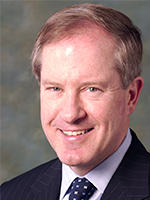
|

|
Nicholas Lardy is the Anthony M. Solomon Senior Fellow at the Peterson Institute for International Economics. He was previously with the Brookings Institution and the University of Washington, where he led the Henry M. Jackson School of International Studies. Lardy has been a prolific and influential writer for decades, writing first on China's planned economy and then on its economic reforms and rising importance to the world economy. His most recent book is Markets over Mao:The Rise of Private Business in China.
|

|

|
Daniel Lynch 林丹 teaches international relations at USC and previously directed the Political Science and International Relations Graduate Program. His new book is China's Futures:PRC Elites Debate Economics, Politics, and Foreign Policy. His previous books are Rising China and Asian Democratization:Socialization to "Global Culture" in the Political Transformations of Thailand, China, and Taiwan and After the Propaganda State:Media, Politics, and "Thought Work" in Reformed China.
Stanley Rosen 骆思典 teaches political science at USC and for six years served as director of the East Asian Studies Center. Rosen has written on a wide range of subjects, from his early work on the Cultural Revolution to his work on education, film, and soft power. His most recent books are Art, Politics and Commerce in Chinese Cinema (ed. with Y. Zhu)and Chinese Politics:State, Society and the Market (ed. with P. Gries). Rosen is co-editor of the journal Chinese Education and Society.
|
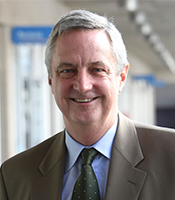
|

|
David Shambaugh 沈大伟 teaches political science and is director of the China Policy Program at George Washington University. He previously taught at the University of London and edited the leading journal in the field, The China Quarterly. His many influential books include China Goes Global:The Partial Power, China's Communist Party:Atrophy and Adaptation, and Modernizing China's Military:Progress, Problems, and Prospects. His latest,China's Future, will be released March 14. The 6th edition of his edited work The China Reader:Rising Power will be out in April.
|
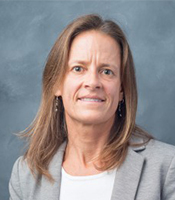
|

|
Teresa Wright chairs the political science department at California State University, Long Beach. Her research has focused on how the Chinese state has successfully engineered sweeping economic changes without undertaking significant political reform. She's written on a wide-range of topics, including trust in government, religious groups, and youth attitudes. Wright's newest book is Party and State in Post-Mao China. Her earlier books are Accepting Authoritarianism:State-Society Relations in China's Reform Era and The Perils of Protest:State Repression and Student Activism in China and Taiwan.
|
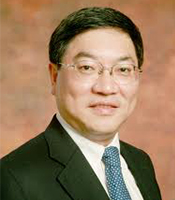
|

|
Shen Dingli 沈订立was trained as a physicist but has become one of China's foremost international relations scholars and commentators. He teaches at Fudan University where he is currently the deputy dean of the Institute of International Affairs. He previously headed the Fudan Center for American Studies. A prolific writer of hundreds of articles and op-eds, Shen is also the author of academic works on arms control, American national security strategy, conservatism and American foreign policy, economic power shifts, and international order.
|
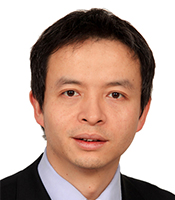
|

|
Tao Ran 陶然 teaches economics at Renmin University in Beijing where he also heads the Center for Public Economics and Governance. One of the foremost scholars on China's land use policies, local government finance, and urbanization, Tao was previously a scholar at the central government's think tank, the Chinese Academy of Sciences, and also directed the Brookings-Tsinghua Center. He's the author of more than eighty articles in leading international and Chinese journals. | 
















